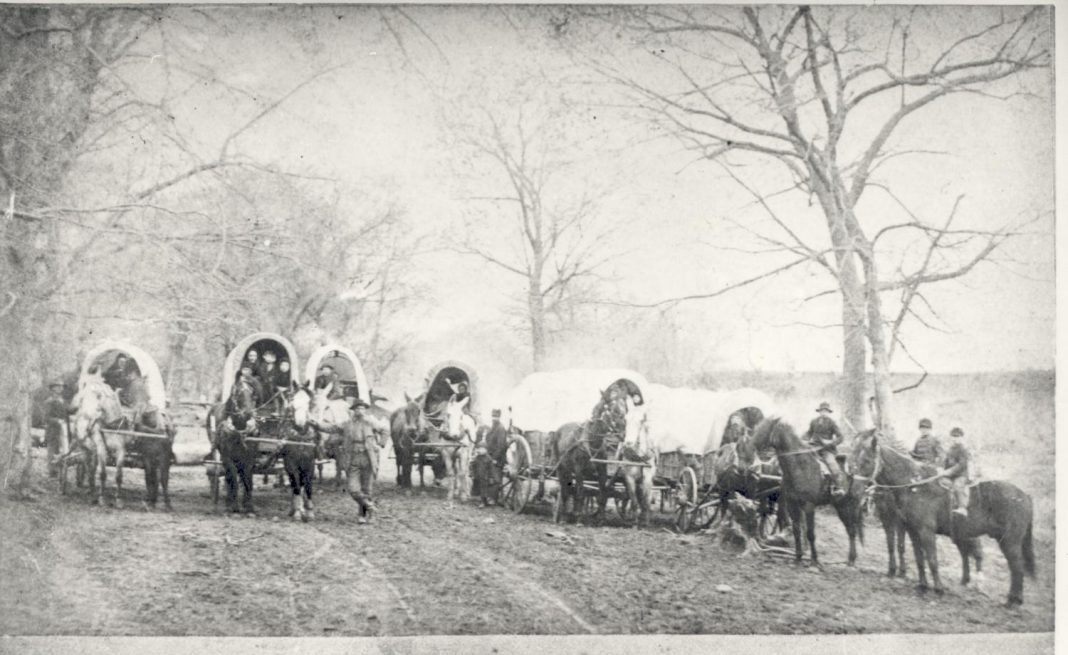Generations of Oklahoma school children dress in prairie duds every spring to commemorate the Land Rush of 1889 … from the perspective of non-Native American settlers.
But with the 130th anniversary of the April 22 opening of Unassigned Lands in Indian Territory, historians examine long-term impacts of that and other historical developments affecting tribal sovereignty.
“People focus on the Land Run,” says Bob Blackburn, executive director of the Oklahoma Historical Society. “I disagree with that concentration because it’s critical to understand that the Land Run was just one event out of several, and not even the most important when it comes to considering the sovereignty of Indian Nations.”
Native rights eroded before and during the Civil War; those losses amplified with treaties during Reconstruction. The Land Rush of 1889 was part of a sequence of federal seizures of Native lands and forcing tribes from all over the country to Indian Territory, Blackburn says. By the 1870s, government-sanctioned treaties were ignored and acts of Congress, upheld by the Supreme Court, abolished most Native American sovereignty.
Jay Hannah, who has served as secretary of the Cherokee Nation and in other leadership roles, says the 39 recognized tribes in Oklahoma have at least that many different perspectives regarding the Land Rush of 1889 and other events regarding Native American-held land. Hannah sees improvement in the past half-century; he credits economic strides taken by tribes and federal policy changes (through executive actions by President Richard Nixon) as reasons why Natives have increasing self-determination now.
“Today, the Cherokee Nation is a real place, under our fourth written constitution,” says Hannah, executive vice president of financial services at BancFirst. “In 1999, I was honored to chair the constitution, and it contained many governmental structural levels [legislative, executive and judicial]. We’ve made amazing communal triumphs in the establishment of schools, seminaries and higher education as well as business enterprise.
“There is reason to have hope for the future. Reformation of our government is a big and ongoing accomplishment, and I’ve lived to see some big changes, not just economically or in gaming, but in a wide variety of enterprises that generate revenues … to help provide health care, education and welfare for our citizens. As one example, the Cherokee Nation is advancing $5 million to 14 counties of school districts, so the Nation is pioneering a pathway, saying we are good neighbors and not just for Indian kids.”
As for those children and their yearly Land Run enactments …
“There is a great deal of sensitivity on this subject,” Hannah says. “I’m a centrist when it comes to looking at history, and there were contributing decisions on both sides of the ledger when it comes to looking at what caused Oklahoma to come into existence. When we see people critical of celebrating the Land Run, I’d say it’s not a simple story to tell, and there isn’t one right or wrong answer.”

























